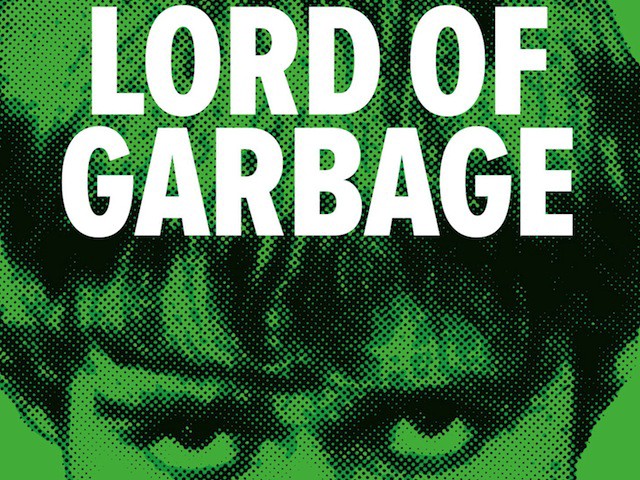Kim Fowley, “Lord of Garbage”
by Alexandra Molotkow

Jackie Fuchs, former bassist for the Runaways, has spoken out about Kim Fowley, the band’s manager, who drugged and raped her, in full view of band and crew members.
Fowley, who died this March, is a cult figure — an antihero of the Los Angeles music scene since the 1960s, and a musician in his own right. Fuchs told reporter Jason Cherkis she was inspired by the women who spoke out about Bill Cosby and other public men who’d been getting away with abuse for many years.
Fowley is a special case. As Sean Nelson writes in the Stranger, “while Cosby cloaked himself as a wholesome, and later self-righteously upright, entertainer, Fowley flaunted his lasciviousness.” Cosby — like former CBC Radio host Jian Ghomeshi, who was fired last fall following multiple allegations of violent sexual assault — built their reputations on being mild and nonthreatening. Kim Fowley was the exact opposite: people loved him for being vile. “He made the threat of sexual violence a primary component of his persona. And he was richly rewarded for it by the commercial and journalistic machinery that rewards rock ’n’ roll stars for being outlaws.”
“No article, description or array of words could begin to describe this multi-faceted, extremely talented, unpredictable, wild, brilliant, intuitive and morbidly crazed individual,” wrote Aime Joseph, his former assistant, in an essay for SCRAM Magazine, long before this came to light. She describes a classic good-bad boss: charismatic and abusive, the kind of brazen manipulator who tears you down with the pretense of building you up better. “Shut up, fuckie! You know nothing about life and I am a genius,” he yells at her. “That’s why you follow me around and let me work you to the bone with the most menial of tasks…you’d better learn how to be tough or get a tit-job and start working out so you can fuck your way to the top!” She includes a glossary of his pet terms: a “dirty bitch” is “any girl who may have even the slightest sexual interest in Kim Fowley.” (“As he would admit to anyone,” Cherkis writes, “Fowley was mostly after teenage girls, or, in his words, ‘young cunt’ or ‘dirty pussy.’”) A “beautiful yet kinky or bad girl” is “urine stained,” and a Pamela Anderson or Anita Pallenberg is a “urine goddess.” (I actually relocated the article by googling that term.)
“People either love the guy or hate him,” Runaways biographer Evelyn McDonnell wrote in a chapter on Fowley:
He’s charismatic and repulsive, brilliant and demented, a visionary and a scumdog. He has carefully cultivated his own bad-guy persona — the working title of his unpublished memoir is Legendary Prick….Loud, freakish, vulgar, vulnerable, and just plain weird, Fowley has long served as the fall guy in the story of the Runaways’ fall. It’s a role he has cultivated; this son of Hollywood actors knows that the villain is more interesting than the hero…Kim Fowley is an appalling character. The appall is part of his appeal.
Fowley and Ghomeshi are nothing alike, but they share a reputational feature: the tincture of “bad person.” It didn’t work for Ghomeshi, who came off as smarmy and insistently “decent” on air. But it made Fowley interesting, and he offered ways to justify your interest. “Fowley is also the guy who supported and promoted the Runaways — who didn’t want to just fuck teenage girls, like so many of the men who hung around the Strip, but who wanted to see them raging on stage,” McDonnell writes. In his words: “I’m everybody’s worst nightmare and somebody’s wet dream…I’m a horrible human being with a heart of gold, or a piece of shit in a bag of diamonds. I’m a bad guy who does nice things, as opposed to a nice guy who does bad things.” Good people are statistically more boring.
There’s a strange line we draw here, and it’s mostly an article of faith. Someone can be a self-admitted “shark,” with a history of steamrolling others’ humanity as it serves him, who preys on the desperation, or naivete, of those he wants something from. (From Pamela Des Barres’s I’m With The Band: “He towered over me with a wide, toothful grin, stick-thin, unconquered and unconquerable. He told me he would rather be married to me for forty-seven years than to fuck me for forty-seven minutes. I believed this to be the most profound statement ever uttered; my mind mattered more than my body.”) But until the other day, there was no proof — at least no public proof, to my knowledge — that he was an outright rapist. He was just a shithead, not a monster.
As Nelson writes in the Stranger, Fowley was part of a culture that allowed, and encouraged such behavior: a culture in which rock ’n’ roll’s most beloved guitarist could reportedly have a roadie abduct a preteen girl and embark with her on a beautiful romance. This was not just OK, but part of his mystique; this is the guy who bought Aleister Crowley’s house (Crowley having spawned a whole species of misogynerd) and reputedly carried around whips in his suitcase to use on his very young groupies.
There is a significant difference between allowing someone to commit an abominable act, and consuming their work in spite of it. But the same qualities that made Fowley an antihero are the qualities that made him a fucking rapist: cruelty and shamelessness, combined with a convenient refusal to see women and girls as human beings. There’s no separating the era he belonged to with the abuse it encouraged. If you love and mythologize it, as I do, you have to work that out with yourself.